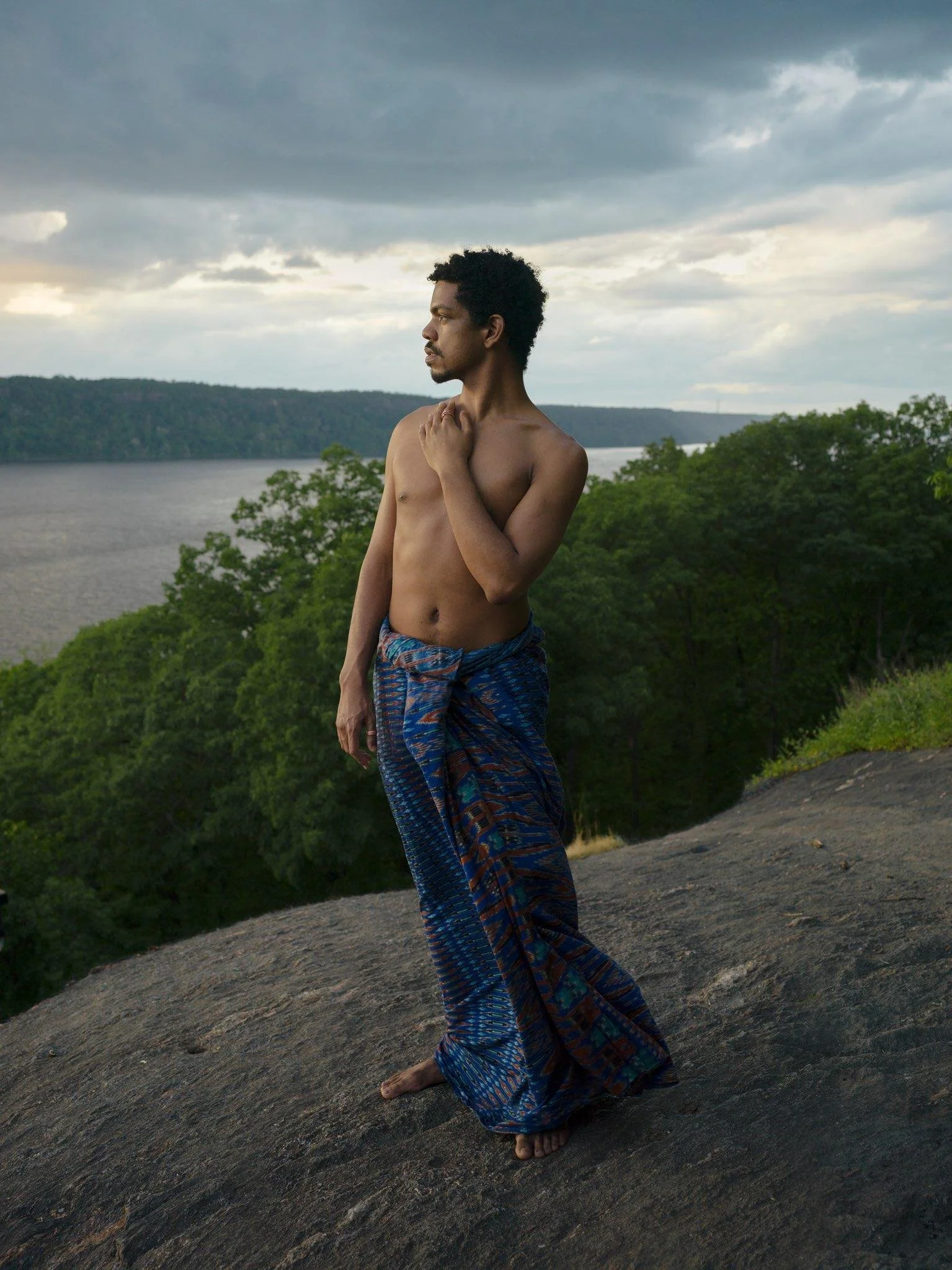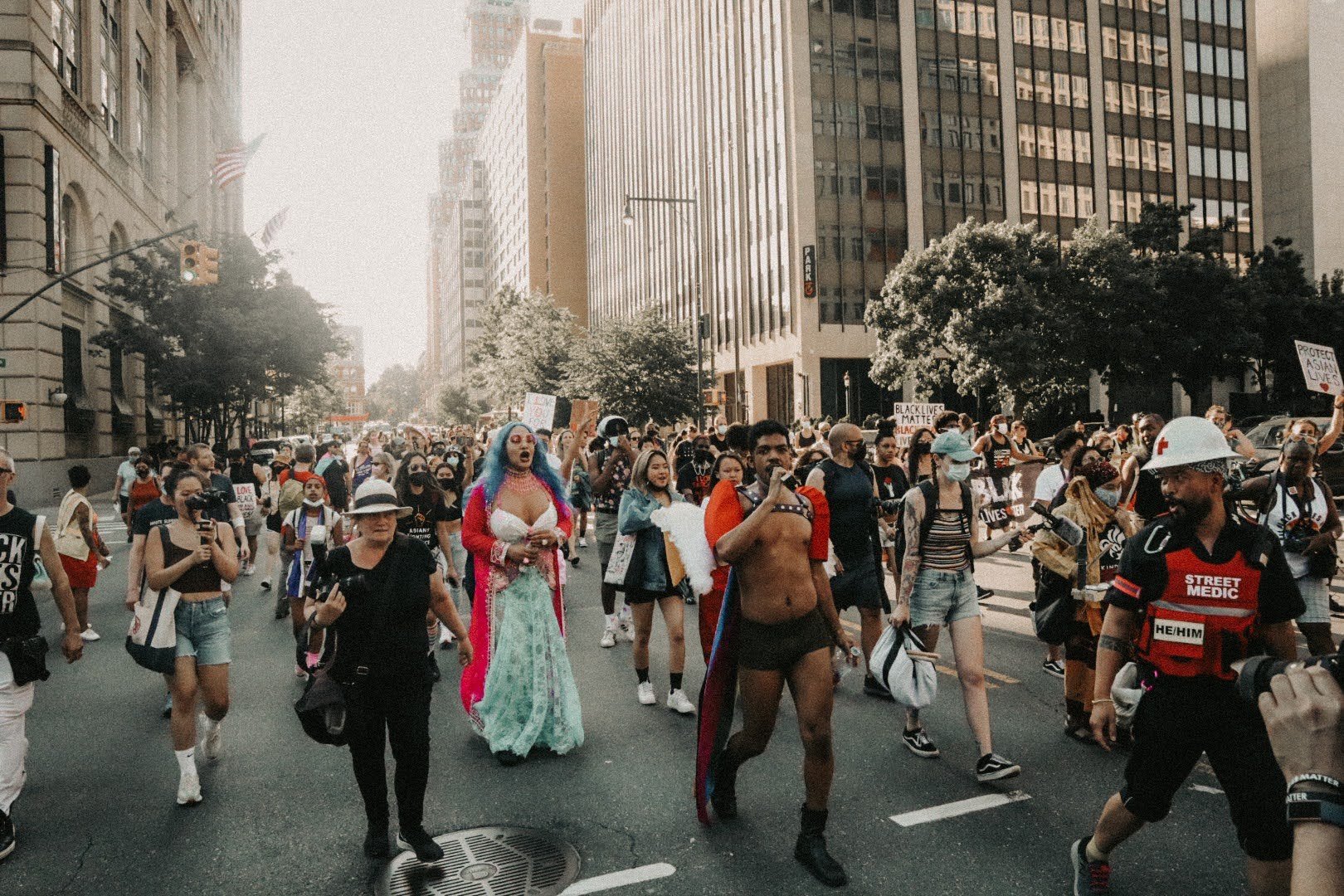Who Will Cry for The Black Asian?
MIXED ASIAN MEDIA - April 16, 2022
By Rohan Zhou-Lee
Rohan Zhou-Lee. Photo Credit: @stas.ginzburg
Many moons ago while living in Chicago, I had gone bar hopping through Boystown with an incredibly beautiful man. He was a Brown Asian, shorter than I, and presented more masculine. We went with our friends from venue to venue holding hands, taking shots, and dancing. In a place filled with pride flags and “Love Is Love” slogans, we were faced with nothing but hate. Many people stared at us. Others laughed. Someone even took a video. Complete strangers tried to physically separate us while we were kissing. A former friend on Halsted even waved to me, a smile on his face. When he saw our hands together, his smile turned into a deep scowl.
None of this racial violence came from white people, as one might expect. This violence was all done to us by Black people.
As a Black Asian, my experiences with racial violence can be unique. The AAPI hate I get looks like a Black dance instructor inside a classroom of Black students saying to my face, “You don’t identify with the Black community.” I told Mother after this that I had never felt more Asian in my life. Once, I applied to work at a Black organization that centers racial justice. The director illegally asked my race. Regardless, I disclosed with pride that I am a Black Asian. This led to a barrage of questions and demands that I somehow explain anti-Blackness in Korean and Chinese culture and media. The interview ended with, “I am disappointed you aren’t doing enough for the Black community.” Black people have told me many times, “You don’t even look Asian,” or “You must hate being Black.” One even suggested I get therapy to deal with my self-hate.
This montage goes hand in hand with how I have been treated in Asian communities. In the desperation to prove just how Asian I am, I’ve had to bend backwards and forwards just to be admitted, although many won’t because of the color of my skin. In the ones I have entered, many have stolen my work and cheated me out of money. I helped at a Filipino rally once in Chicago, where I, a Filipino American, was thanked for my “allyship.” Once, I was told, “If you’re have Asian and half Black, then your d*ck must be average.” Last year, I helped organize an action in New York for Asian communities, where some leaders thought it best to center East Asians, only because of the current news. What does this do for people like me, when anti-Blasian hate is rampant but not covered, let alone acknowledged?
As a Black Asian, I have multiple targets on my back. White society already targets me for being of color. Asian folks look down on me for the beautiful Blackness of my body. Black individuals often shame me for not assimilating into racial divides. Doing so disrespects my ancestors and only fulfills the white mythology that Black and Asian peoples are incapable of coexistence.
Such anti-Asian and anti-Black hatred, however, are both rooted in white miseducation. I have seen such bigotry in white people too. Upon learning of my mixed heritage, a gay, white man said to me, “Kiss me, Chinaman,” a racial slur that he thought was flirtatious. Another said he didn’t want to go home with me because he didn’t “want to get AIDS.” I blame this on how advertising and language on statistics has misled many to assume that Black people are more likely to contract HIV/AIDS, when the ongoing crisis is due to systemic lack of access to sexual healthcare in Black neighborhoods. Many white, gay men will not approach me because I am Black, but upon learning I am Asian suddenly attempt non-consensual touch, a clear suggestion that they uphold sexually racist U.S. colonial imperialism. Such behavior alleges that Black bodies, as descendants of slaves, are subhuman and thus unattractive, and Asian bodies exist only to be invaded, a common theme in gay, adult content.
Rohan Zhou-Lee #DuterteWakasaNa Rally on July 25, 2021. Photo Credit @imagesbysam
When we imitate the behavior of the colonizers, we admit to intellectual subservience, that the white mythologies about us are accurate. To engage in anti-Asian hate is to forfeit Black Power. To spew anti-Blackness is to surrender Asian Power. Such lateral violence maintains our slave mentality and strengthens the colonial state’s hold on us. This self-segregation is part of why our movements refrain from advancement in political discourse, from entering what Rosemary Campbell-Stephens coined the global majority.
Anti-Blackness and anti-Asianness, globally normalized forms of hate institutionalized by colonization, leaves a Black Asian like me with so many questions and a deep solitude. If anything were to happen to me, or another Black Asian, will our communities finally unite? Who will cry for the Black Asian when everyone has been taught to hate us so much? Will Stop AAPI Hate disaggregate data to include hate crimes enacted on Blasians? Must I be the only one to scream Black Asians Matter at a BLM rally?
Rohan Zhou-Lee at Newark Museum of Art. Photo Credit: Jose Malgarejo
After a vigil for the Atlanta shooting, a member of my collective Asians4Aboltion asked how I maintain hope. At that point, I didn’t have an answer. Now, Mariame Kaba’s words come to mind: “Hope is a discipline.” While some think of discipline as something robotic and compulsory, my careers in dancing and writing interpret discipline as the formation of craft. Craft, meaning going through the exercises enough to hone it, reflect on the beauty of what one is doing, circumnavigate the blocks that return you to hope and make it more easily accessible. In such dark times, when anti-Asian hate continues to pervade our communities — despite the ratification of the COVID-19 Hate Crimes Act and the inefficacy of policing — and anti-Black violence has also increased — especially towards trans communities, craft allows us to reimagine, reassess, and re-integrate hope. If a block towards hope is the constant bombardment in the media of anti-Asian violence, especially when that media only reflects a small portion of hate crimes when the perpetrator is Black, my craft tells me to anchor myself in Asian joy. What brings me Black joy when the news barely covers the latest rash of violence towards Black trans people? Instead of focusing on death, craft invites me to celebrate the living.
It is such craft of hope that keeps me from despairing and spiraling into trauma. Despite what Black and Asian individuals have done to me, I hope that my existence can heal both. I have cocooned hope in myself whenever I wear my Filipino red terno sleeves or Chinese chi’pao dress. To reference Sole Yu’s words, political imagination, the presentation of my body in such clothing offers possibility that yes, we can coexist and be joyous. Yes, we can eradicate any and all anti-Asian hate while simultaneously affirming the infinite value of Black life. Yes, and, to borrow the words of Kimberlé Crenshaw, together we can build a sustainable and everlasting path to intersectional liberation.
Rohan Zhou-Lee, pronouns They/Siya/祂 (Tā) is a Queer/Non-Binary Black-Asian author, dancer, and organizer in New York City. Zhou-Lee is the founder of the Blasian March, an initiative to build solidarity between Black, Asian and Blasian communities through education and celebration. They have been featured as an organizer on AJ+, CNN, NBC Chicago, WNYC, Gothamist, Hella Pinay, and other news outlets. They have written on Black-Asian solidarity for them. magazine, Prism Reports, Truthout and Mochi Magazine. Their essays have been incorporated into Asian American studies courses at California State University. Podcast interviews with siya can be heard at The Bánh Mì Chronicles, Militantly Mixed, Politically Asian, and more. They have presented at Northwestern University, University of Michigan, UCLA Berkeley, University of Minnesota, and the Midwest Mixed Conference 2021. Siya is set to speak at the Filipino American National Historical Society Biennial Conference and the Los Angeles Blasian March Black Asian Trans Power Rally, May 21. Recent performances include trumpet with ChamberQUEER Ensemble (Julius Eastman, Joy Boy) and François and the Rebels at the New York Theatre Barn Choreography Lab, a musical on the Haitian Revolution written by Jaime Cepero and choreographed by Angela Nicole Patmon. Zhou-Lee holds a Bachelor of the Arts degree in Ethnomusicology from Northwestern University.




